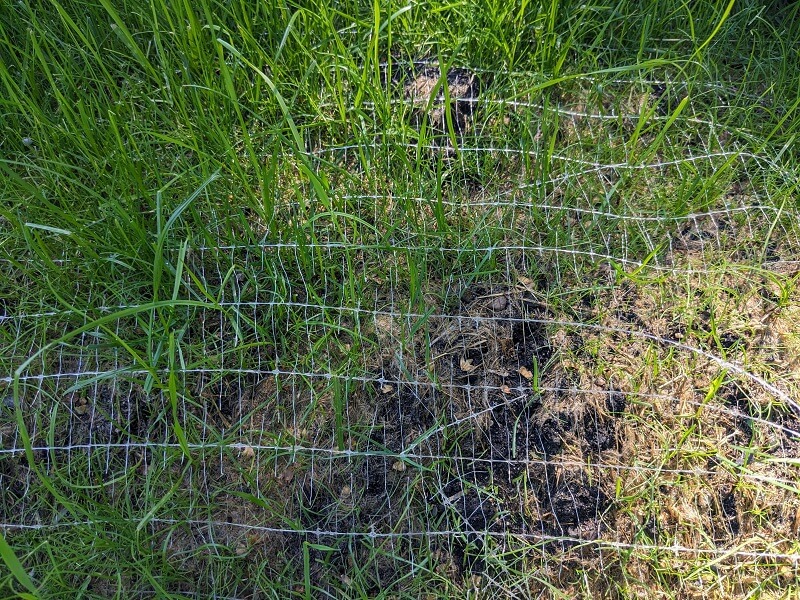A homeowner called out the hypocrisy of using plastic sod netting next to eco-friendly signs in r/NoLawns.
The first photo they shared gives a curbside view of the plastic-covered lawn, followed by a closeup.

"Is there any proposed legislation anyone's aware of to prevent landscapers covering the earth in plastic?" the OP asked in the caption. They also noted the neighborhood was full of signs promoting bee- and watershed-friendly practices.
Plastic netting is thought to reduce growing time and encourage strong roots. However, the harm it causes outweighs the benefits.
It's horrific for wildlife, predominantly snakes and birds. Animals can get caught, suffer injuries, and die.
Long-term, this landscaping technique creates microplastics that never break down, becoming not only a maintenance nightmare but also a huge environmental concern. These tiny plastics are turning up everywhere, from the deepest parts of our oceans to the food we eat.
"So frustrating! It's just so short sighted to do something like this. It's literally trashing the soil for posterity for a minor convenience," the OP wrote in the comments.
Plastics are made from dirty energy sources such as gasoline and oil that do not decompose. Using this material in your lawn becomes a never-ending headache.
🗣️ If you were to switch from a grass lawn to a more natural option, which of these factors would be your primary motivation?
🔘 Making it look better 🌱
🔘 Saving money on water and maintenance 💰
🔘 Helping pollinators 🐝
🔘 No way I ever get rid of my lawn 🚫
🗳️ Click your choice to see results and speak your mind
Opting for a natural lawn with native plants will make your life easier, help bees, and save water. Rewilding your yard saves money by using less water, pesticides, and fertilizers. The best part is that you won't need the help of any plastics for your lawn to thrive.
Use the National Audubon Society's Native Plants Database to find plants that are native to your area and join the no lawn movement. From clover lawns to wildflowers and tapestry lawns, your pockets and patience will be as relieved as the pollinators in your area that will have more places to eat. Don't be afraid to start small and test the water before making bigger landscaping changes.
Several Redditors shared their disdain for plastic netting in the comments of the post.
"This netting was put down when my old house was built in 2006. In 2022 I was still digging it out. I would pull out yards of it, thinking that was the end of it, I was wrong so many times," a Redditor warned.
Another commented: "It doesn't biodegrade it just degrades, turning into smaller pieces of plastic. Small enough to work its way into the environment, our bodies, animals bodies."
"Landscapers will not quit using it, but the solution would be to create something biodegradable that would break down in three or four years," a third wrote.
Join our free newsletter for easy tips to save more and waste less, and don't miss this cool list of easy ways to help yourself while helping the planet.









